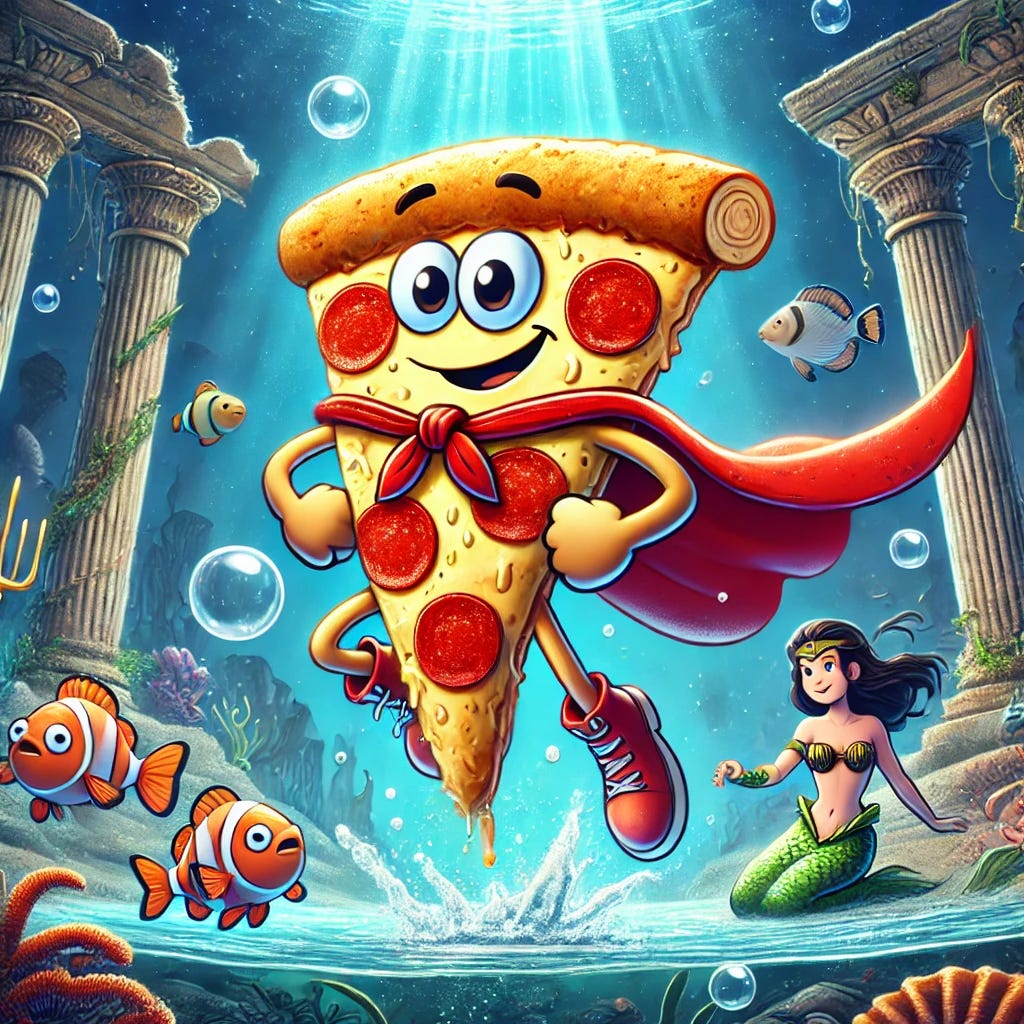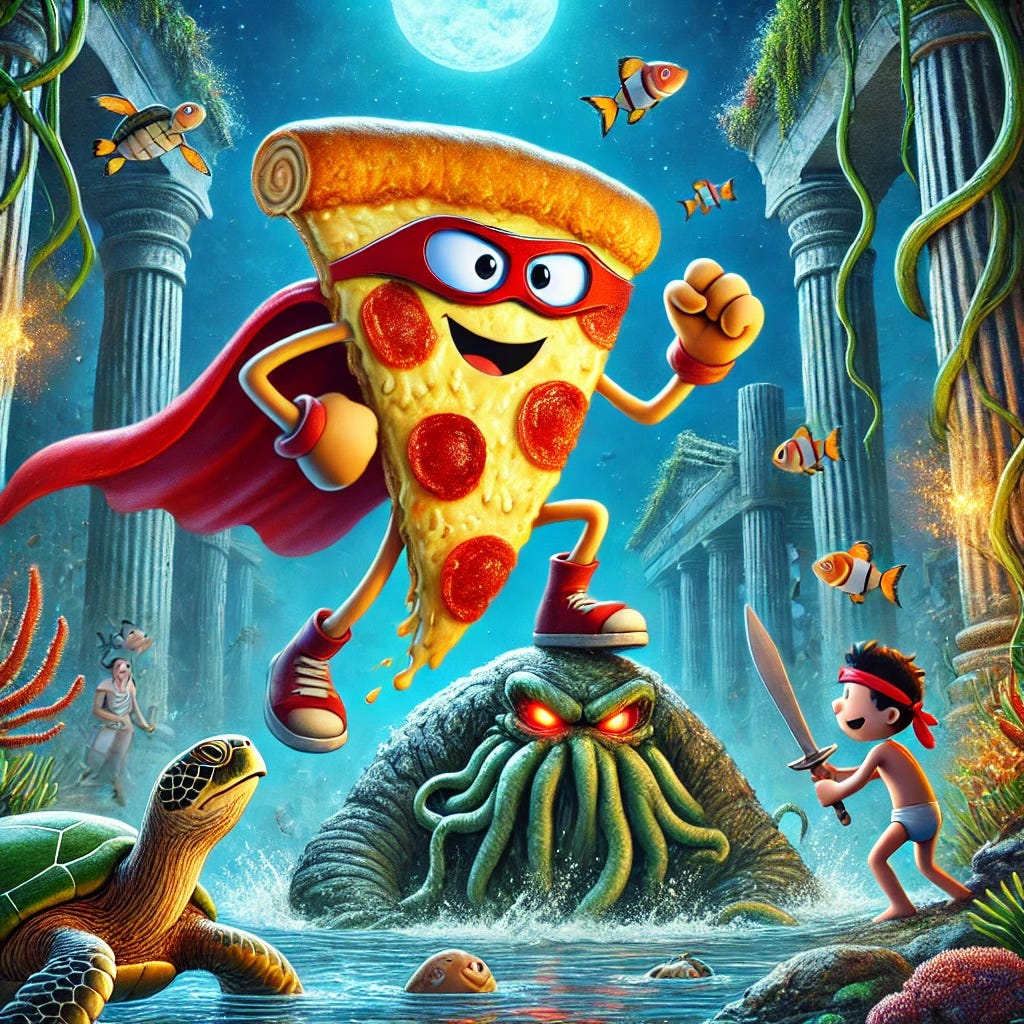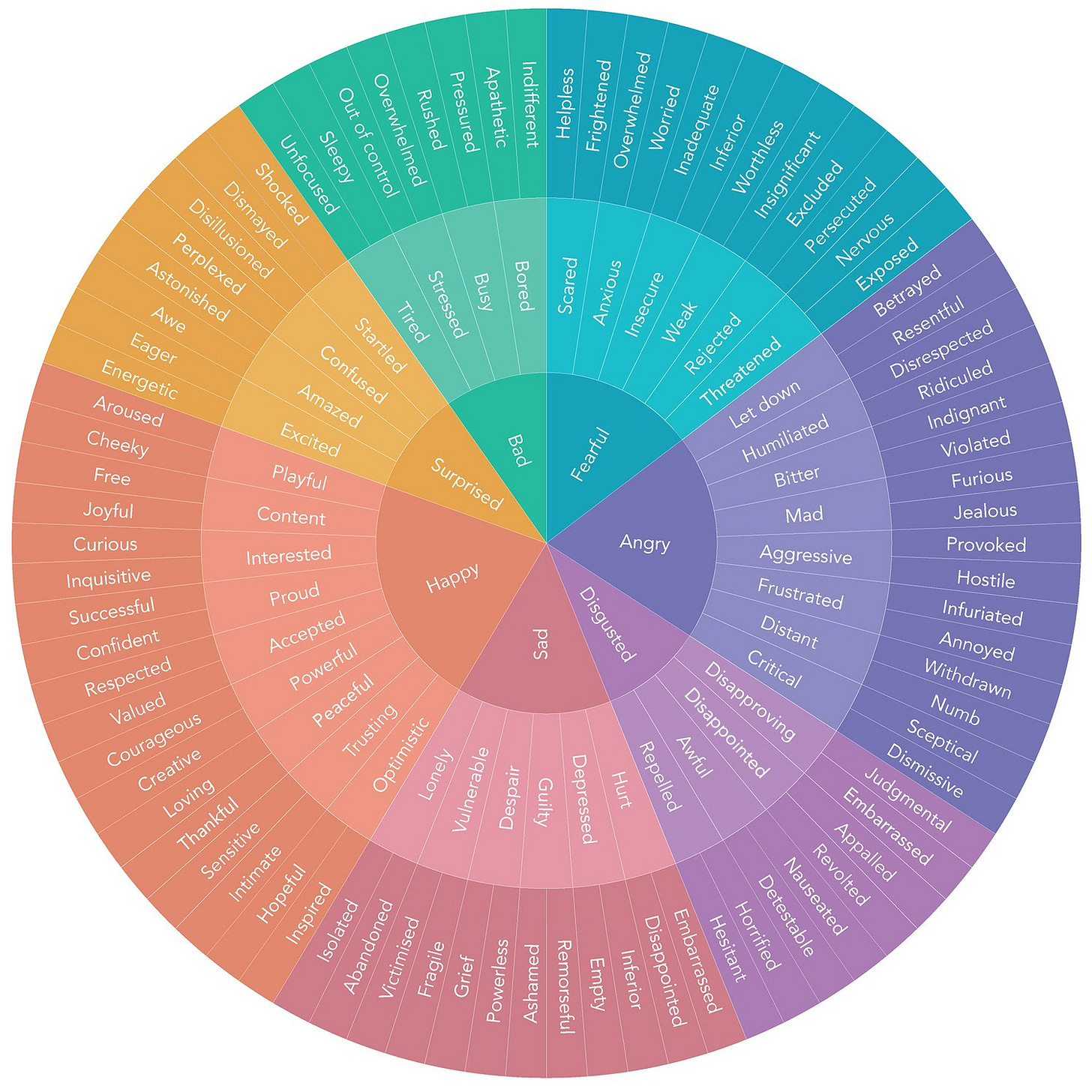A TRILLION-Dollar AI Insight from 2 Kids?!
I introduced my little cousins to AI. Their response? Mind-blowing.
“MAKE IT DRAW SKIBIDI TOILET!!!!” —my 6 and 8 year old cousins.
5 minutes before…
Me: "Hey Jolie, do you want me to show you an AI?”
Jolie: “What’s AI?”
Me: “It’s Artificial Intelligence, just ask it anything you want.”
Shows her ChatGPT.
Jolie: “Draw me the sky?”
Prompt: “Draw me a sky in watercolors”
Max, her brother, joins and looks at the computer, curious.
Both: “WHAT!?!? WOWWWWWWW!!”
During Lunar New Year, I was hanging out with my baby cousins Max (6) and Jolie (8), getting to know them and sharing my hobbies and interests.
I successfully got them stoked on rock climbing.
I also successfully got them stoked on AI.
I witnessed something extraordinary: my cousins had never interacted with any of these new AI tools before.
I couldn't have scripted a better “user research opportunity” for Epistemic Me.
Kids are unbiased in thinking.
They’ll tell it like it is with no filter.
These interactions brought more strength to my thesis that the kids who grow up today, will come to expect hyper-personalization tomorrow.
It tells me that we are on the right path to solving a trillion dollar opportunity with Epistemic Me, by defining a new category. (thanks for the confirmation bias, cousins)
So what did Skibidi Toilet look like?
What is hyper-personalization?
Let’s dive in.
What's Inside This Week:
ALIGN: Stop Aging? Deep research in SECONDS?
BUILD: The Next Generation's AI Expectations
CULTURE: Interactive Storytelling Is Here To Stay
🤖 ALIGN: Stop Aging? Deep Research in SECONDS?
A few curated links and resources of recent topics around AI, health, longevity, business and product frameworks, cool tools, and general stuff I find interesting.
Could AI Stop Aging by 2032? Exploring Kurzweil's Predictions
Ray Kurzweil, a prominent inventor and director of engineering at Google, has a history of accurate technological forecasts. In the 1990s, he predicted the rise of portable computers and wireless technology by 2009, a foresight that materialized with the proliferation of smartphones and Wi-Fi. Extending his predictive lens to human longevity, Kurzweil suggests that by 2030, advancements in nanotechnology and AI will enable humans to achieve significant life extension, potentially leading to immortality.
Robert's Take: While Kurzweil's predictions might seem ambitious, the acceleration we're seeing in drug discovery and compound identification is unprecedented. The real game-changer is in how AI is connecting disparate research findings in ways human researchers simply couldn't process. That said, 2032 feels optimistic. Who knows though. None of us truly know. What a time to be alive.
AI company partners with institutions for patient care, medical education
Arca AI has announced collaborations with Longevity India and IISc Bengaluru to enhance longevity research using AI, machine learning, and deep learning analytics. The partnership aims to develop predictive models for healthy aging in the Indian population.
Robert's Take: This partnership is particularly exciting because it addresses one of the biggest gaps in longevity research - diverse population data. Most aging studies have focused on Western populations, but India's diverse genetic pool and varying lifestyles could provide invaluable insights. Big fan of people trying to solve this gnarly problem.
Perplexity Releases Deep Research
Perplexity just dropped Deep Research, and it’s exactly what it sounds like—AI that goes beyond surface-level summarization to generate comprehensive, multi-step research outputs. Think of it as the difference between Googling an answer vs. having a research assistant that cross-references sources, synthesizes insights, and builds a coherent argument ACCURATELY.
Robert's Take: This is a game-changer for anyone who values depth over dopamine. Instead of wading through SEO-baited fluff, you get direct insight from high-quality sources. The bigger picture? This is how AI becomes an actual intelligence amplifier, not just a faster way to skim the internet.
🛠️ BUILD: The Next Generation's AI Expectations and The Trillion Dollar Opportunity
"A lot of times, people don’t know what they want until you show it to them."
—Steve Jobs
Max and Jolie were full of wonder going back and forth using ChatGPT.
Their eyes lit up and smiled as big as the grins they wore with every interaction with AI.
After the watercolored sky…
They wanted me to put a pizza man underwater.
PROMPT: Draw a pizza character similar to captain underpants, in an underwater world like Atlantis.
Max and Jolie: “WOWWWWWWW. I KNOW, I KNOW! Add more turtles and fishes!! Add a villain!”
PROMPT: Redo this, and show lots of turtles, and lots of schools of fishes, and have the character be saving people from an evil villain
Max and Jolie: “MAKE IT DRAW SKIBIDI TOILET!!!!”
I had no idea what that was—they taught me new slang. I’m getting old.
PROMPT: Okay now draw me a skibidi toilet character that has a poop on its head as its central identity, and it is in this setting. It is fighting against the pizza character
Max and Jolie: “NOW MAKE HIM HAVE A TRIDENT!!!”
PROMPT: Now, make the pizza character killing him with a trident
What struck me most was their rapid progression from basic prompts to complex creative requests.
They went from not knowing what was possible, to expecting the tool to realize their deepest imaginations.
What a user journey.
That is fundamentally the basis of what I am calling the consumer expectation of hyper-personalization.
Hyper-personalization: the ability to programmatically represent a person’s beliefs, values, and evolving self in a way that allows any system to truly personalize value to the individual.
Most AI personalization systems today are transactional and static—they react to your behavior, but they don’t understand the “why” behind it.
Hey we saw you buy this and other people that bought this also bought this other thing. — Amazon, etc.
That type of problem solving does not get into the “why” behind the human. And it certainly does not evolve with the perspective of the user.
People’s beliefs evolve over time. Current software systems do not accommodate for this.
Epistemic Me is solving this at a foundational level.
Our approach quantifies subjective beliefs you have (and how they evolve over time, as you change over time) to create dynamic, evolving and versioned models of self that AI can learn from, adapt to, and even help refine.
User Research Findings: Very Happy, and A Little Sus
The most revealing moments came the day after when we were sitting at dinner for a Lunar New Year party.
They asked me if they can play with AI.
I whipped out my phone, and I told them I wanted to ask some questions first.
I showed them the Feelings Wheel.
I asked them: “How did AI make you feel?”
Jolie: “AI makes me feel this whole section”, pointing at the Happy section.
Max: “HAPPY HAPPY HAPPY”, in all of his excitement.
Jolie: “It also made me surprised! And… and… overwhelmed.”
Max: “I also felt, a little… sus.” (suspicious, in slang)
Intriguing. I asked them to tell me more.
Max: “It was like the Imposter in Among Us!”
I looked up who this Imposter is, in the game Among Us.
Here’s a description:
The Impostor is one of the two primary roles in Among Us. Their goal is to kill the majority of the Crewmates or cause a critical Sabotage that the Crewmates fail to fix to win.
Huh. Very curious indeed.
This revealed to me another crucial insight: even children have an intuitive understanding of AI's limitations and the importance of trust. They felt suspicious and immediately mapped it to the Imposter character whose role is literally killing everyone.
Wow.
This tells me… This generation will demand transparency in AI systems—they want to know not just what AI can do, but how it thinks about them.
“It takes time to understand the contours of a new world and how to function in it. Trust starts with exposure and evolves with use. Once you learn what something is and how it functions, you begin to trust it. Trust equals consistency over time.”
—Reid Hoffman, Superagency
Before I showed them AI, I noticed that when they got home from school, they would watch movies and TV shows and play video games, such as Pokemon.
And after I showed them AI, I noticed that when they got home from school, they didn't want to just go to their typical movies, TV shows, and video games.
They started coming to me asking me to do things with AI.
And so I asked them, “What is different about this versus your normal movies, TV shows and video games?”
Jolie and Max made a couple more comments that gave me profound insights into what the users of tomorrow will truly want from AI:
Jolie: "AI makes me feel like I have a creative mind."
Max: "It's like it's in my head and then it comes out in real life."
This generation won't settle for generic AI interactions.
They won’t settle for any software or application not understanding them.
They expect technology to be an extension of their thoughts, a collaborator in their creative process.
They will expect ZERO Time To Value, and hyper-personalized value.
This is exactly why at Epistemic Me, we're betting big on what we’re call the hyper-personalization layer.
A Trillion Dollar Category
"The people who are crazy enough to think they can change the world are the ones who do."
—Steve Jobs
These interactions point to a clear future: successful AI applications won't just be technically sophisticated—they'll need to be emotionally intelligent and personally relevant.
The kids' engagement levels skyrocketed when they felt the AI understood their interests (Captain Underpants, Harry Potter, etc.) and could adapt to their creative direction.
They trusted the tool more, as it gave them the emotional outcomes they desired:
Feeling like they have a creative mind.
Feeling like the tool understands and knows them.
Feeling like they can trust the tool.
I believe hyper-personalization at this level can transform everything in the world for the better.

Here are just a few ways that I can see Epistemic Me positively impacting the world with hyper-personalization:
AI Alignment & Ethics: How can AI understand us if we don’t fully understand ourselves? And how can AI be aligned with us? We solve AI alignment by modeling human belief systems with precision. We will be able to calculate alignment scores.
Health & Longevity: Imagine personalized longevity plans that evolve with your beliefs, behaviors, and biology. (We’re working on this now)
Education: AI tutors that adapt to your learning philosophy and epistemology—to help YOU learn at a faster rate, for YOU. Not generic. For YOU.
Mental Health & Self-Actualization: Imagine a mirror for your mind that helps you deconstruct limiting beliefs and evolve into your best self. Bring it to therapy. Self-actualize faster.
The Future of Social & Search: Instead of feeding you content that reinforces your past behavior or gets you addicted, we imagine that applications of the future will guide you toward your aspirational self through the personalization layer we are building. It is your Model of Self, filtering things that matter for YOU.
And—we can’t solve this alone, in a vacuum.
That’s why we’re standing up an Advisory Council to build this better future together.
→ If you’re keen on joining an Advisory Council to help us guide the future of hyper-personalization with Epistemic Me, reply to this email with your qualifications and reasons for interest! I’m looking to establish an Advisory council by ~mid May timeframe.
✌🏼 CULTURE: How Storytelling for Kids is Evolving Across The World
Across the world, children's literature is shifting towards interactive storytelling, inclusivity, and environmental themes.
“Children’s Book Trends for 2025 reveal a big change in storytelling and children are loving it. No more linear stories; today’s authors are trying out new structures that ask the reader to participate in the story. Interactive storytelling is on the rise where children get to make choices that affect the plot. This keeps them engaged and makes them co-creators of their own reading experience.”
My cousins showed me that they don’t just want stories told to them.
They want to be part of the storytelling.
Confirmation bias, confirmed.
Liked this article?
💚 Click the like button.
Feedback or addition?
💬 Add a comment.
Know someone that would find this helpful?
🔁 Share this post.
P.S. If you haven’t already checked out my other newsletter, ABCs for Growth—that’s where I have personal reflections on personal growth related to applied emotional intelligence, leadership and influence concepts, etc.
P.S.S. Want reminders on entrepreneurship, growth, leadership, empathy, and product?
Follow me on..
💪🏼 How You Can Help
What's Next?
We're building something unprecedented: kind of an operating system for human understanding and beliefs.
If you're an engineer or builder who's ever felt the gap between technical capability and philosophical aspiration, we're building this for you.
Check out our website: https://epistemicme.ai/
GitHub here: https://github.com/Epistemic-Me
EM acts as a personalization layer and set of services that allows you and your applications to understand your users better. We have built a model and set of interfaces from first principles thinking in philosophy and epistemology to accurately map human belief systems.
What can that do for you?
→ Perhaps increase sales conversions.
→ Perhaps optimize copywriting in your automation funnels, depending on the user.
→ Perhaps helping researchers and scientists better quantify subjectivity in their experiments, for better science.
And… if you are looking for the “next best question” to evolve your beliefs, it could help you too.
In a few weeks we are going to rapidly get the structure to ship new features constantly, with new releases tied to this newsletter and our podcast.
Check out our first podcast on YouTube or Substack for a heavier deep dive into our “Why”.











